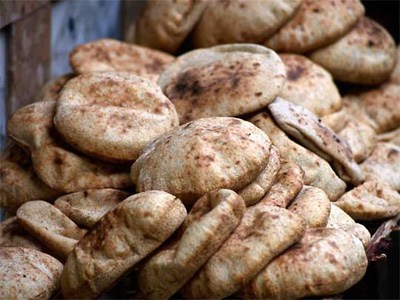I thought a lot about bread this term, motivated by the chapel team as they tried to perfect a homemade recipe for our daily Eucharist. Their small experiments brought changes to the bread I consecrated or received each week—it varied in density, sometimes crumbly and sometimes not, but always hearty with a whole wheat base.
As Christians, we place a lot of stock in bread and its ability to bind us together as the Body of Christ; we also value bread for the sustenance it gives as human beings. In that way, Jesus’ prayer to “give us this day our daily bread,” is not just a cry for transformation in Christ; it’s a cry for basic nourishment.
 As I considered how we think of bread as spiritual and physical edification, I also recalled a third use of bread: bread and circuses. Panem et circenses. Popularized in ancient Rome—in the empire in which Jesus participated—the phrase represents the phenomenon of pacifying the masses with food (bread) and entertainment (circus) in order to distract them from issues to which they should be paying attention. Most recently, it reentered popular consciousness with the publication of the Hunger Games, the story of a dystopian society where children compete to the death in order to entertain those who live in the Capitol. Their Survivor-esque slaughter functions as the circus that distracts the Capitol’s residents from the abuse of their fellow citizens.
As I considered how we think of bread as spiritual and physical edification, I also recalled a third use of bread: bread and circuses. Panem et circenses. Popularized in ancient Rome—in the empire in which Jesus participated—the phrase represents the phenomenon of pacifying the masses with food (bread) and entertainment (circus) in order to distract them from issues to which they should be paying attention. Most recently, it reentered popular consciousness with the publication of the Hunger Games, the story of a dystopian society where children compete to the death in order to entertain those who live in the Capitol. Their Survivor-esque slaughter functions as the circus that distracts the Capitol’s residents from the abuse of their fellow citizens.
The name of the country: Panem.
As Christians, it’s essential that we focus not just on the bread we consume at the altar or the bread which we dip into our soup but also upon how our society manufactures its own bread and circuses, how we participate in them, and how we can resist them. What false bread do we consume? What circuses do we watch in order to distract ourselves from hard realities? Where are the bread and the circuses that go unnamed but that carry enormous power that is of this world and not of God?
Advent’s wait closes in a few days with the commemoration of Jesus’ birth. We must not forget—as we reclaim our identity as followers of the Bread of Life—that our call is to name what is true bread and what is false nourishment, what transforms and what is the metaphoric equivalent of empty calories. We must do that brave work as Jesus followers both because that is how Jesus lived and also because that is how Jesus instructs us to be.
In my short time at the Seminary of the Southwest, I’ve been inspired by how my colleagues and students embody this call. Whether by teaching the basics of biblical interpretation or by protesting at Standing Rock, I’ve found that members of this community strive to distinguish the bread of life from the bread accompanies the circus. I see Jesus’ vision alive, pulsing with vibrancy, on this campus. I see it in the classroom. I see it in meetings and conversations with students. And perhaps most poignantly, I see it in the bread placed in my palms every day.
The Rev. Dr. Danielle Hansen is Assistant Professor of Pastoral Theology at Seminary of the Southwest. Before arriving at the Seminary, she was Chaplain at Groton School and a lecturer at Yale and Tufts Universities. She is the author or editor of three books. www.danielletumminio.com

